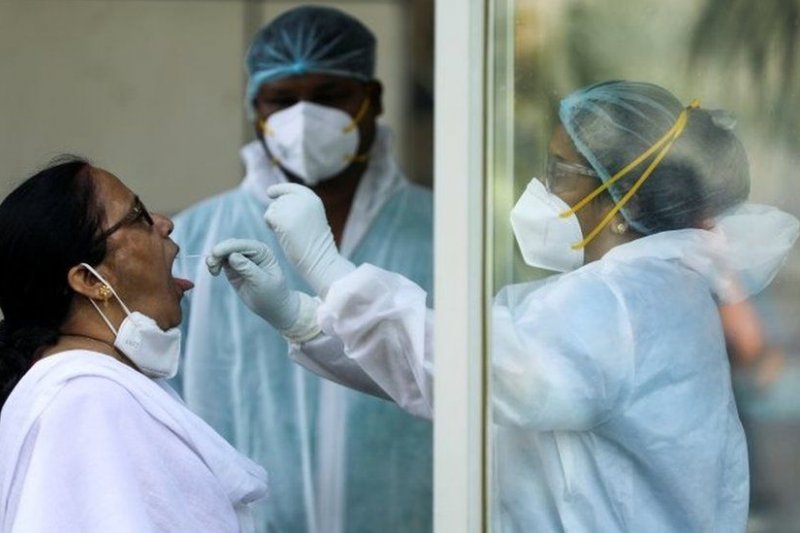Covid: Concern Increases over India Variant in UK
Public health experts have recommended a version of the Indian Covid variant found in the UK to be made a "variant of concern", the BBC has been told. Public Health England (PHE) has been tracking a variant known as B.1.617.2, which appears to have been spreading more quickly in the UK than others.
Scientists believe it is more transmissible than the version of Covid first discovered in Wuhan, China.
A spokesman for PHE said it would not comment on leaked data.
Viruses mutate all the time, producing different versions of themselves. Most of these mutations are insignificant - and some may even make the virus less dangerous - but others can make it more contagious and harder to vaccinate against.
The Kent, South Africa and Brazil strains have all been deemed "variants of concern" in the UK. These versions, along with the India variant, have all undergone changes to their spike protein - the part of the virus which attaches to human cells.
The original India variant - officially known as B.1.617 - was first detected in the country in October.
That version has now been re-characterised as three different subtypes, all with slightly different genetic mutations.
The UK has seen a sharp increase in one version in particular, known as B.1.617.2, which now makes up the majority of all Indian variant cases and appears to be growing faster than other versions.
PHE scientists think with "moderate confidence" that it spreads at least as quickly as the version of the virus first found in Kent last year - known as B.1.1.7 - which is currently dominant in the UK.
But a source has told the BBC there is no evidence this version of the Indian variant is resistant to current vaccines.
It does not feature the E.484K mutation found in the South African variant of the virus, which could help the virus dodge a person's immune system and may affect how well coronavirus vaccines work.
It is believed that more than 500 cases of B.1.617.2 have now been detected across England with the highest levels in London and the north-west of England.
That would represent a sharp rise from the 202 cases officially recorded by PHE in the UK as of 28 April.
It is not known how many of the current infections in the UK can be linked back to international travel.
However, it is thought there has already been some evidence of "significant" community transmission, mainly linked to workplaces and religions gatherings.
In one cluster at a care home, 14 elderly residents who have all been vaccinated were infected with the variant, the source said. A number needed hospital treatment but not for severe disease, and it is thought all have now recovered.
All current vaccines are thought to offer some degree of protection against variants but can never completely stop all Covid infections, especially among the vulnerable or elderly.
(Source: BBC)













